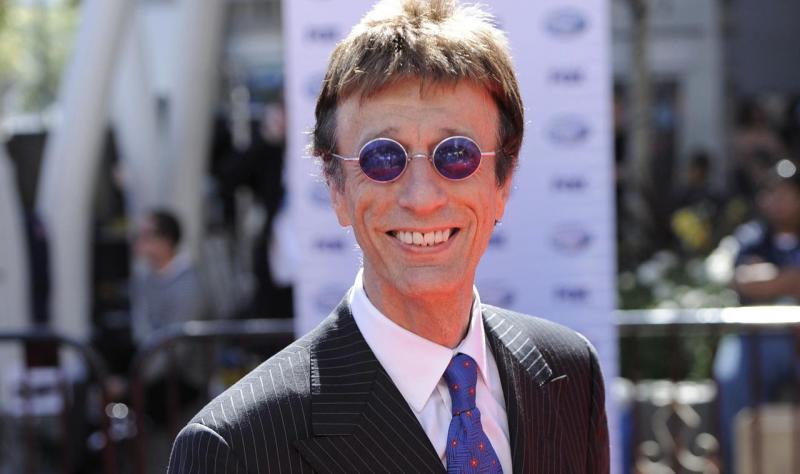
Robin Gibb was not just a singer or a member of a famous band; he was the quiet force that carried the emotional weight of the Bee Gees’ music. With a voice capable of aching, soaring, and trembling all at once, Robin became the heart behind many of the group’s most enduring songs. Yet behind the fame and success was a life marked by deep personal struggles, artistic battles, and a profound sense of loss, especially after the death of his twin brother, Maurice Gibb.
Born on December 22, 1949, in the Isle of Man, Robin shared a unique bond with Maurice, a connection that shaped his life’s trajectory. Together with their older brother Barry, they formed the Bee Gees during their youth after the family emigrated to Australia. By age nine, Robin’s distinctive vibrato and haunting tone were already captivating audiences in local performances. This voice would later become central to the group’s early hits like “Massachusetts,” “Holiday,” and the iconic “I Started a Joke.”
Although the Bee Gees are often remembered primarily for their explosive disco success in the late 1970s, Robin’s influence was most deeply felt in the band’s early years. He infused the music with emotional depth, frequently taking on lead vocals for the Bee Gees’ more melancholic and introspective ballads. However, by the late 1960s, tensions arose within the group as Barry took a more prominent role. Feeling sidelined, Robin left the band briefly in 1969. His solo album, Robin’s Reign, produced the hit single “Saved by the Bell,” confirming his ability to succeed independently. Despite this, the brothers soon reunited, held together by familial bonds and shared creative interests.
“Robin was always the emotional center of the band,” recalled Alan Kendall, longtime Bee Gees guitarist. “His voice carried the melancholy that defined so much of their early sound, something that truly touched the fans.”
Robin’s personal life was as complex as his artistry. His first marriage ended in divorce, while his second marriage to Dwina Murphy was unconventional and often a subject of media curiosity. Throughout rumors and scrutiny, Robin and Dwina maintained a quiet dignity and mutual understanding. When a child from another relationship was revealed, the couple faced the situation calmly, defying tabloid expectations.
The death of Maurice in 2003 was a turning point for Robin, deeply affecting him personally and creatively. Friends and family observed that a part of Robin seemed to fade after losing his twin. Even during his battle with cancer in the early 2010s, Robin remained committed to his craft, continuing to compose, record, and make public appearances despite his weakening health. His final major work, The Titanic Requiem, was a collaboration with his son Robin-John and served as both a tribute to a tragedy and a poignant farewell.
“Losing Maurice was like losing half of himself,” said Dwina Murphy, Robin’s widow. “Robin’s last words, ‘I wish Mo was here,’ reflect that deep, unending bond between the brothers.”
Robin Gibb passed away on May 20, 2012, but his legacy endures—not only through awards or record sales but in how his voice told stories that no press release could ever capture. Through every haunting note, Robin’s music spoke a truer language of raw, unfiltered, sincere emotion that outlasts us all.